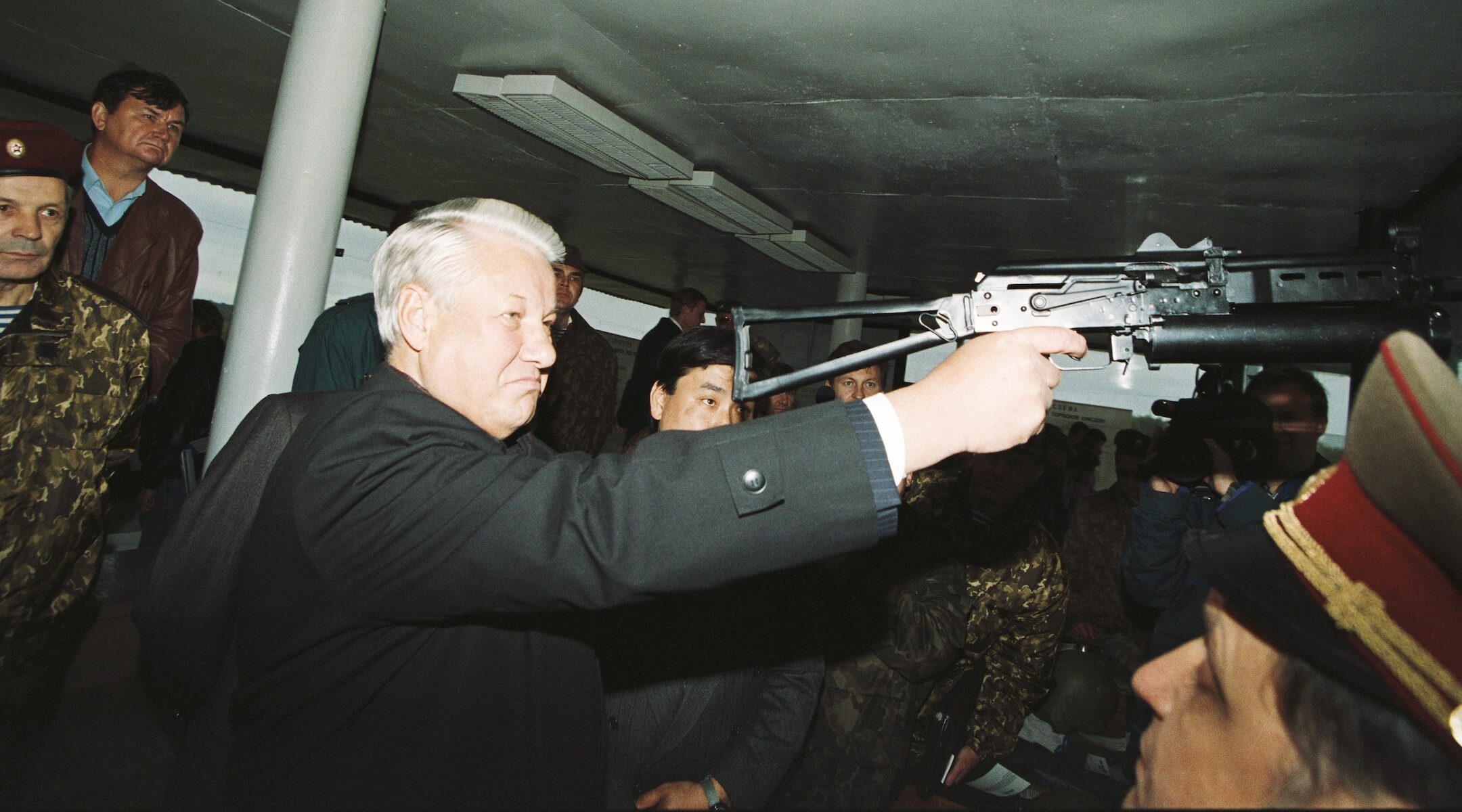Russian President Boris Yeltsin’s latest Cabinet reshuffling could hinder the government’s ability to crack down on anti- Semitism, according to Russian Jewish leaders.
“There is little grounds for optimism when we call on the government to ensure stability but there is no stability with the government itself,” said Pavel Feldblum, the executive vice president of the Moscow Jewish Community.
Feldblum’s comments came after Yeltsin sacked his entire Cabinet, including Prime Minister Sergei Stepashin, in a surprise move Monday. Yeltsin replaced Stepashin, the fourth prime minister he has fired in the last 17 months, with security chief Vladimir Putin, a former KGB spy.
During a trip to Washington last month, Stepashin condemned anti-Semitism in Russia and vowed to “eradicate” it.
The news took leading politicians, experts and ordinary Russians by surprise. Last week, Moscow’s leading newspapers speculated about an impending Cabinet reshuffle, but few expected the change would come so soon.
Like Stepashin, the 47-year-old Putin is a native of St. Petersburg. A former aide to St. Petersburg’s liberal ex-Mayor Anatoly Sobchak who was virtually unknown until last year, Putin has enjoyed a meteoric rise in the Kremlin.
Recently he has been the director of the Federal Security Service, the Russian domestic intelligence agency that is the successor to the Soviet-era KGB, as well as the secretary of Yeltsin’s Security Council.
Putin, who has a reputation for being loyal and cautious, said Monday he planned to retain key ministers from the outgoing government in his new Cabinet. He also vowed his administration would continue the Kremlin’s current policies, including a commitment to economic reforms.
In his previous jobs, Putin became familiar with some of the issues that concern Russia’s Jewish community. As the former head of the FSB, Security Council and a presidential commission to combat extremism, Putin dealt with the issues of anti-Semitism, neo-Nazism and racism in Russian society. But Putin has never made any direct public comments concerning anti-Semitism.
Putin has had several meetings with Jewish officials, according to Moscow’s chief rabbi, Pinchas Goldschmidt. Last year Goldschmidt was among a group of Jewish leaders who met with Putin, then head of the FSB, to discuss security- related issues.
Putin was “sympathetic” to issues raised by the Jewish leaders in the meeting, said Mark Levin, executive director of the Washington-based National Conference on Soviet Jewry, who participated in the meeting.
But Levin and the Union of Council for Soviet Jews, another U.S.-based advocacy group for Jews in the former Soviet Union, expressed caution over the appointment.
Some Russians — Jews and non-Jews — oppose Putin’s appointment because of his link to the KGB.
“Yeltsin’s pick of Putin as prime minister and successor scares me,” said Yelena Fradkis, 61, a Jewish teacher of economics at a Moscow university.
“I remember too well the fear me and my family had for the KGB.”
As with most previous reshuffles, the reason for Yeltsin’s latest decision remains unclear.
Some of Yeltsin’s critics across the political spectrum accuse the Russian president of having lost his mind or of acting only in the interests of his own family and his close entourage.
Others say Yeltsin is trying to combat the growing popularity of a burgeoning political alliance between Moscow Mayor Yuri Luzhkov and Former Prime Minister Yevgeny Primakov. A bloc established by these two, along with other influential centrist politicians, stands a good chance of winning the majority in December’s parliamentary elections, according to observers. Luzhkov, who has sharply criticized Yeltsin, is likely to run in the presidential elections scheduled for the summer of 2000 as well.
In a televised address to the nation, Yeltsin said he would like to see Putin as Russia’s next president.
But according to a new poll, Putin enjoys little popularity among Russia’s electorate. Ninety-two percent of 3,049 callers to a poll conducted Monday by the Echo Moskvy radio station said they would not cast their votes for him if he ran for president.
The Duma, Russia’s lower house of parliament, is expected to approve Putin’s appointment when it votes on the matter Aug 16.
JTA has documented Jewish history in real-time for over a century. Keep our journalism strong by joining us in supporting independent, award-winning reporting.
The Archive of the Jewish Telegraphic Agency includes articles published from 1923 to 2008. Archive stories reflect the journalistic standards and practices of the time they were published.




